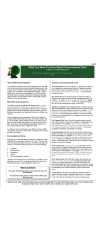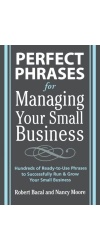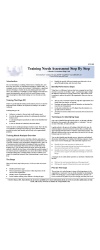Are you writing for ego, or writing for a purpose?
Writing For Social Media For Business Is Different Than Vanity Writing
If you are familiar with book publishing, you’ll probably know that self-publishing, in the old days used to be called “vanity publishing” because people who did it were said to be going that route for vanity – so they could say they published a book without actually involving a publishing house. It was considered disreputable.
Nowadays, self-publishing has become more accepted, and many legitimate authors do it. Of course, now one can self-publish articles and posts, too, on platforms like LinkedIn, or on blogging platforms like WordPress.
The Difference Between Vanity Posting and Business Posting Online
Nowadays, there’s no real purpose in distinguishing vanity posting of articles and purposeful posting on the basis of who publishes it, or the process by which it appears in public.
What IS important is that writers, particularly those who have a business purpose for writing online, understand that HOW you write, and what you write about determines whether your work will be successful in reaching a purpose, or be a fun activity you engage in for your own amusement, or ego.
The difference between writing for purpose and vanity writing lies in the perception you create in readers. While it is about perceptions of others, the writer, through his or her style, choice of content and focus, determines that perception. There’s nothing “wrong” with writing for yourself unless you have a business purpose, in which case vanity writing will interfere because it has the potential for damaging your personal brand.
The Differences Between Vanity Writing and Writing With Purpose
Vanity Writers
- Vanity publishing tends to lack boundaries around word choice. They tend to use vulgarity, swear words, heavy handed humor, etc on social media, which tends to damage their social and personal brand.
- Vanity writers focus their writing on themselves, rather than readers, both in content and form. They focus on THEIR opinions, or their obsessions, and they tend to write on a limited set of topics over and over.
- Vanity writers tend to be overly concerned about metrics that mean almost nothing in terms of business goals. They don’t realize it but their focus is on how many readers read them, how often they “like”, without realizing that these metrics may or may not have any relationship to their business goals.
- Vanity writers tend to focus on “getting a reaction” that feeds the ego, again, a process that is more about the writer than about the readers.
- Vanity writers have no social media plan. They tend to post the same material on various platforms, in the mistaken position that the more exposure, the better. Again, it’s ego driving the process, even if the vanity writer isn’t aware of it.
Purposeful Writers
- Whatever you write about, if you want it to contribute to your business goals, it has to be consistent with those goals in tone, content type, focus and so on or you may create the opposite result from what you intend. Purposeful writers write primarily for their readers. They write to help readers accomplish something and because of that, they add value.
- Purposeful writers have specific goals in mind, and specific audiences in mind for each of their articles or posts. Those goals are consistent with having a plan for their social media presence that ties in to their business plan.
- While purposeful writers express opinions, they recognize that strangers probably don’t care much about their single opinion. They may offer up personal opinions to explain a point, but rarely write rants, complaints…just because.
- Purposeful writers tend to steer clear of online arguments, and when responding to criticism, avoid sarcasm and persona insult. They know that public bad behavior, however acceptable in some circles, reflects on the personal brand.
- Purposeful writers don’t write on “everything under the sun” or try to be expert in many subjects, because a) many topics simply don’t tie in to their goals, and b) posting as an expert on too many topics gives the impression that you know less than you actually do.
- Purposeful writers can still use stories and anecdotes about their own experiences, but rather than being the focus of what they post, the stories exemplify a specific point. Again, it’s not about the writer, but about the goals oriented to the reader.
Conclusion
To stress the point, there is nothing wrong with vanity posting (posting for one’s own enjoyment, or the fun of having people read what you write. Absolutely nothing, which is good since the majority of posts on social media are of this type.
The problem lies when a person is trying to use social media to help his or her business, but isn’t aware of the difference between writing for purpose (for readers) and writing for self (vanity).
Whatever you write about, if you want it to contribute to your business goals, it has to be consistent with those goals in tone, content type, focus and so on or you may create the opposite result from what you intend.






